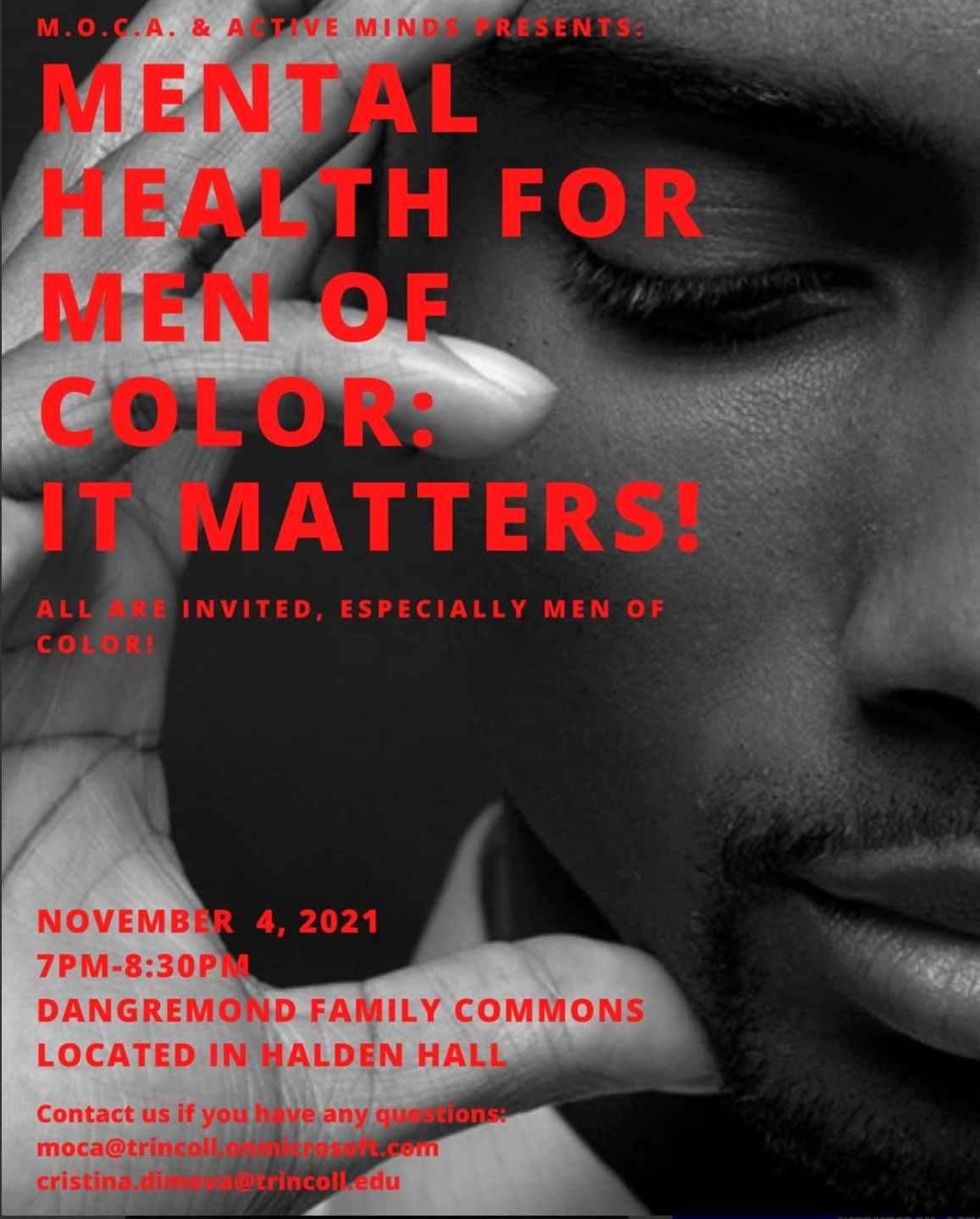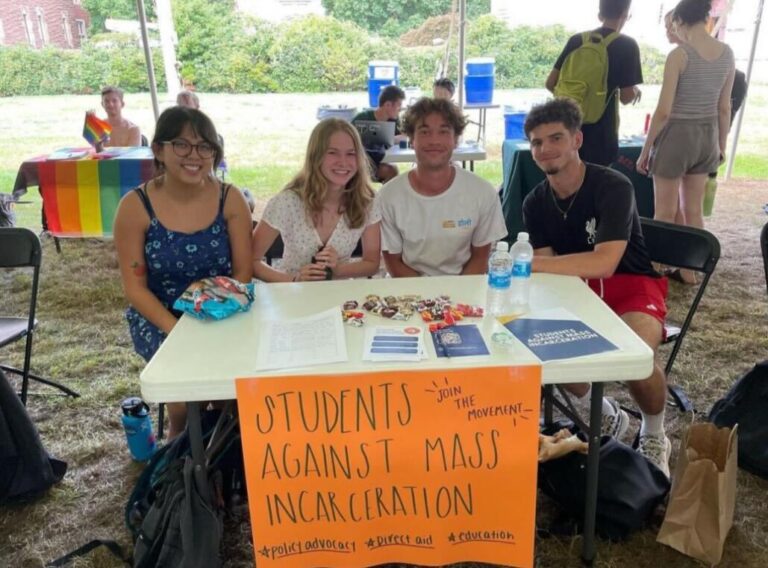Bailey McKeon ’22
Features Editor
Trinity’s Men of Color Alliance (MOCA) and Active Minds cohosted an event to bring awareness to and start the conversation about mental health for men of color. On Thursday, Nov. 4, the two organizations gathered to share some statistics and open a safe space for men of color to share their experiences and viewpoints surrounding their journey with mental health.
The event, “Mental Health for Men of Color: It MATTERS!”, began with a check in, during which each member at the event introduced themselves and shared as much as they were comfortable with about their current feelings and life situations. Next, the cohosts shared important, and telling, statistics they collected from their general body.
The purpose of the event was to bring awareness to what these statistics show, specifically that men of color are not receiving the mental health support they need. Due to stigmas and stereotypes, upbringing, gender roles, racial disparities, lack of representation in the mental health field, lack of resources and funding, etc., men of color are blocked from receiving proper care for their mental illness. In fact, many times men of color and prevented from even acknowledging, privately or publicly, their own struggles and journey with mental health.
The collaborative followed these statistics by opening up the floor to the men of color in the room to share their experiences being a man of color on Trinity’s campus, elaborate on what it means to be a man of color at Trinity, a predominantly white institution (PWI), and open up about their own journeys with mental health. Most men of color expressed that they were still navigating what it means to be a man of color on this campus.
Additionally, many expanded on the societal roles that prevented them from acknowledging their mental health or seeking help for it. Where gender roles about what it means to be a man collide with racial discrimination and inequality, students expressed that they are led to stuff down their emotions and trauma and simply put their head down and get through it.
In their experiences with mental health services, there was a common disappointment and dissatisfaction disclosed regarding the lack of representation of men of color in mental health services. Men of color in the room indicated that having more men of color working in mental health services would lead to their receiving of better help, and perhaps even an urge to seek help in the first place.
Men of Color Alliance (MOCA) then led us through a meditation in which we could look inward but also, especially for those in the room who were not men of color, an opportunity to look outward toward this problem and towards the experiences of others after listening to the voices of men of color in the room. The event then ended with a fun game of Kahoot! Overall, it was a great way to begin the discussion about the mental health of men of color. There is much more work to be done.
If you are suffering in silence, or even with support, please remember that you are not alone. There is hope for better days, I promise. Please reach out to the National Suicide Hotline if you find yourself in a crisis, 800-273-8255. You can also reach out to the Crisis Text Line by texting 471 471 to receive immediate help as well.









+ There are no comments
Add yours